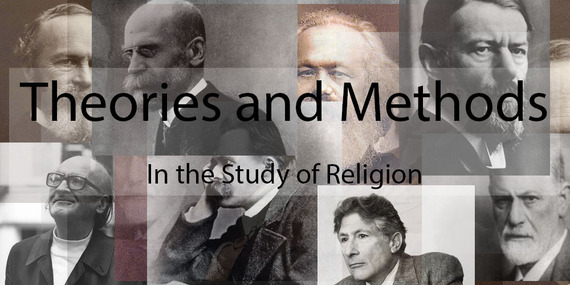Welcome back to the Religion: Theories and Methods series. This week we are exploring some of the theories of the Philosopher Frederich Nietzsche. Our next post will introduce the Philosopher Karl Marx.
In some circles Nietzsche has earned the title "The philosopher of adolescence." This is no slur, but rather an attempt to capture the passionate, angsty, and critically rebellious nature of his thinking. His key theories for religious studies are as follows:
Important Theories: The Will to Power, Perspectivism, the Transvaluation of Values, the Death of God
The Will to Power: Rather than gravity or the strong nuclear force, Nietzsche presents us with a different all-encompassing force at work in our universe, the dynamic "Will to Power." It is the driving force in all things that seeks not just to survive, but to thrive. The drive maximize its potential and possibilities, sometimes at the expense of all else. This theory was mistakenly adopted by Nazism and falsely associated with forms of social Darwinism. The "Will to Power" is not only about mastery, domination, and control, but also about love, giving, and vitality. It is about affirming life in all its facets.
Perspectivism: According to Nietzsche, perspectives are the fundamental condition of all life. In one sense, despite our technological advances, we have yet to find a way to escape our own heads. We are locked into particular bodies, with particular histories, contexts, and interests, and this particularity shapes how we see and understand the world. At every moment we are being bombarded with all sorts of sensory data (sight, smell, touch, etc.) and our bodies are doing their best to interpret that data to help us make sense of the world. In another sense, a perspective is about positionality. Things look different from different vantage points. The Statue of Liberty looks much different for someone standing inside then it does for someone riding by on the ferry. Nietzsche was trying to show that at because we are not All-Knowing (Omniscient), any given moment we can only ever see a small slice of what is true. It would take the collective perspectives, every possible position, to understand an object or an idea fully (if at all!). In his own context, Nietzsche was trying to undermine the Enlightenment commitment to rationality and reason as the All-Knowing eyes of the world.
Transvaluation of Values: Nietzsche's perception that everything strives for power led him to question the power-seeking forces at work in morality. He wondered how that certain things came to be seen as good and evil, and the effects this had on shaping how we see and understand the world. Using his genealogical method, he sought to expose the power dynamics that went into shaping our particular moral beliefs and help us reevaluate them. The story, according to Nietzsche, was that originally their existed a morality of power and strength, a "master morality," in which weaker beings were subject to the will of the strong. Over time, the weaker beings became resentful, and undermined those in power by creating their own morality, a "slave morality," in which gentleness and kindness were valued more than power and strength. Regardless of the position, Nietzsche's point is that what we consider to be "moral" is carefully constructed by whomever is in power and trickles its way through our language and thinking until we accept it without question.
Death of God: Nietzsche might be remembered most, at least in religious circles, for his infamous quote in The Gay Science "God is dead. God remains dead. And we have killed him." The quote is often mistaken as a liberating cry for atheism (as Nietzsche was an avid atheist) and few recognize its context and direction of criticism. Nietzsche was hyper critical of the religion of his day which we now call Christendom. This complex interweaving of church, creeds, state, and law was a deep source of hypocrisy and moral decay in Nietzsche's eyes. The various historical and physical sciences were making claims that exposed the manipulative control of Christendom on society and had made most ideas and beliefs about God useless, irrelevant, or outright despicable. In theological terms, God had become an idol in need of destruction, and according to Nietzsche we killed It.
For religion scholars, Nietzsche plays an important role in drawing our attention to the historical roots and formations of power that shape our thinking today. Not so much a Devil's advocate as a Devil's wrecking ball, Nietzsche tried to undermine the thoughts and ideas people take for granted in order to generate new ways of thinking and seeing in the world.
In case you missed part I: Click Here
